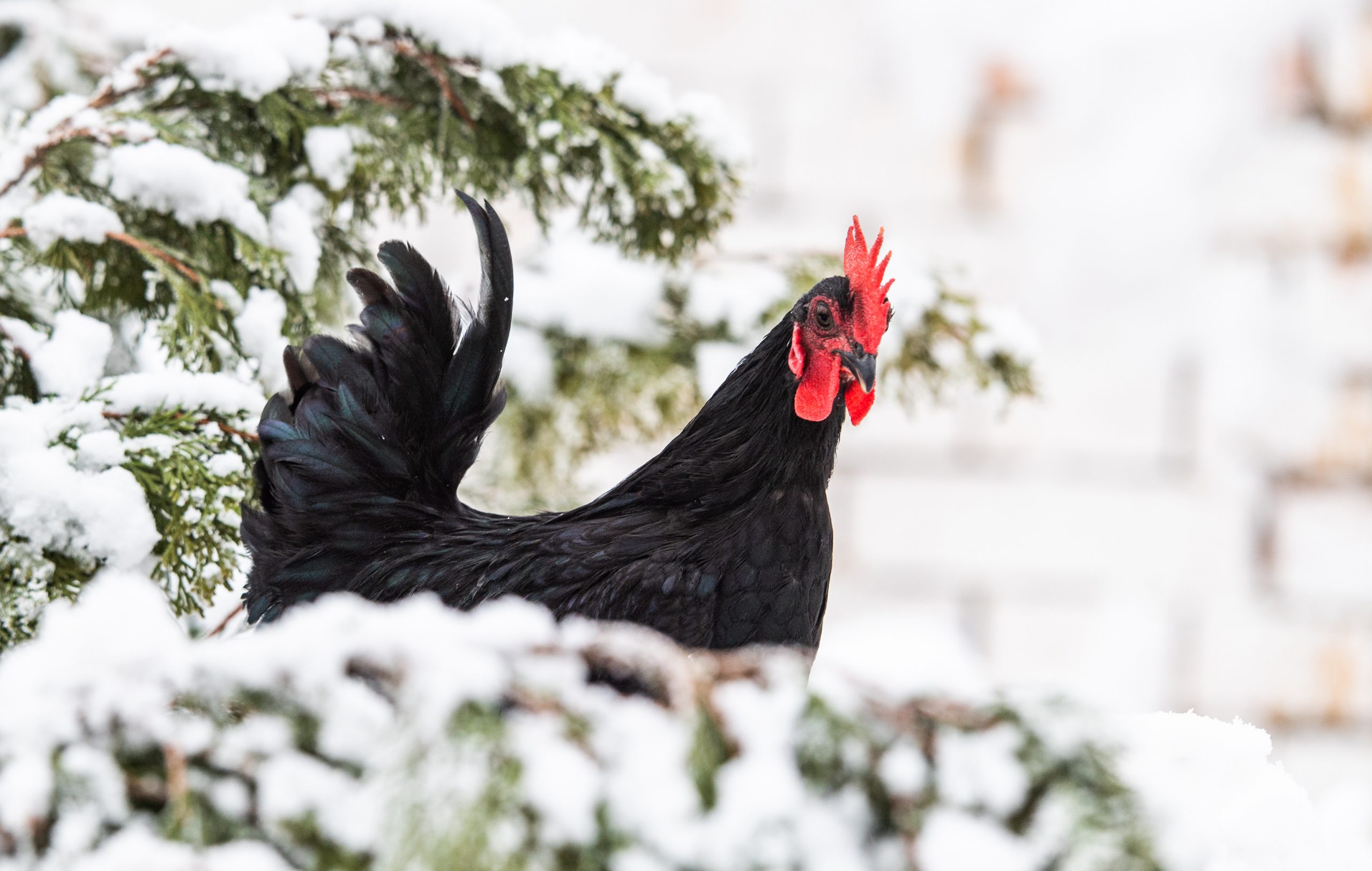
Frostbite in poultry is a real concern during the winter. Chickens, like people, are susceptible to frostbite. When the temperatures plummet and the windchills pick up, we need to consider the chickens. Making a few small changes can help them stay warmer during frigid weather.
What is frostbite in chickens?
Chickens are susceptible to frostbite primarily on the combs and wattles, and sometimes on their feet. You will notice frostbite in your chickens if their combs and wattles suddenly turn off color, and eventually become black. The blackened combs and wattles are dead. They will not regrow, and severe frostbite causes a lot of problems. Because it can’t be treated, prevention is the best bet.
Frostbite can occur because of the cold air, if the wattles get too wet during drinking, or if the chicken stands in snow for too long. Roosters are especially susceptible to frostbite because of their big combs and wattles, but any hen that has large combs and wattles is also at risk. Luckily, there are a few things you can do to prevent frostbite in your flock.
How to prevent frostbite in your chickens
- Get winter-hardy birds –
Chickens that naturally have smaller combs and wattles are considered more winter hardy and are less prone to frostbite. One of the best ways you can prevent frostbite in your flock is to choose birds suited for your climate. Winter hardy birds include Orpingtons, Black Australorps, Rhode Island Reds, Dominiques, Wyandottes, Brahmas, Favorelles, and Speckled Sussex.
- Use wide, flat roosting bars –
A 2”x 4” with the wide part down is your best bet for a roosting bar. The 4” is ideal for chickens to roost on because it allows them to tuck their feet up into their body which helps prevent frostbite on their feet.
- Keep your chickens out of the snow –
My chickens tend to keep to the coop more during snowy winter months, but whether they go out or stay in is up to them. If it’s really snowy, we plow a path around the coop. The paths are primarily for me to make chore-time easier, but the chickens appreciate them as well because their feet aren’t submerged in the snow.
- Limit moisture inside the coop –
It’s really important to limit moisture in the coop as excess moisture can cause severe frostbite. To limit moisture, make sure their bedding is dry and that the coop is properly ventilated. Chickens generate a lot of moisture from their breathing and their poop so having good ventilation to get the humidity out of the coop is key.
- Stop drafts in the coop –
While good ventilation in the coop is key, drafts in the coop are no good. Cold drafts blowing over your chickens at night are a recipe for frostbite. Stop the drafts by insulating your coop. Good insulation will help keep it cooler in the summer months as well.
- Use deep litter method in the coop –
Using the deep litter method on the chicken coop floor is also very helpful in the winter. Deep litter reduces ammonia, provides great compost for the garden, and helps keep the chickens warm because they love to scratch in the naturally insulating layers of straw and pine shavings. We have used the deep litter method since we first starting chicken keeping and it works really well for us.
These are a few ways to prevent frostbite on your chickens. Do you have an idea that we didn’t mention?